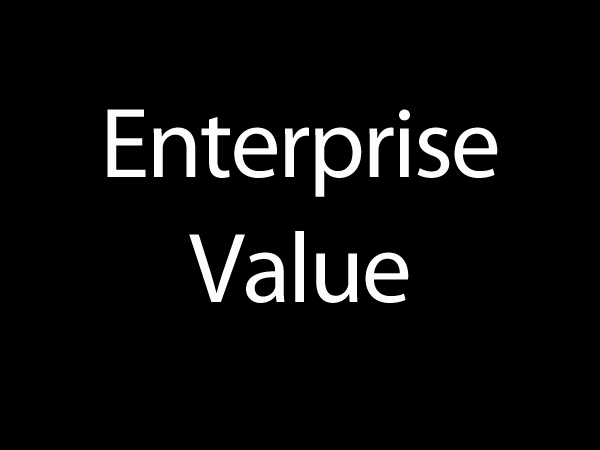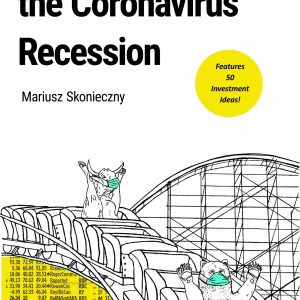Many investors rely on many different metrics such as the P/E ratio, price-to-book ratio, and price-to-sales ratio to determine whether a company is trading at a cheap price. Relying on these metrics may be misleading because it may make you buy something that is not as cheap as you previously thought it was, or it may make you might miss out on a buying to purchase something that you thought was too expensive, but really was not. So what exactly is the enterprise value? It is the price that you would have to pay to acquire a company free and clear. The enterprise value should really be called enterprise price because it has nothing to do with what the company is worth.
Let’s imagine that we are buying an apartment building for $1,000,000 that has a $700,000 mortgage and $300,000 in equity. In order to acquire the property free and clear, we would have to pay $1,000,000 with our money to pay off the $700,000 mortgage and the seller’s $300,000 in equity. In this case, the enterprise value (or enterprise price) would equal $1,000,000, which is equity ($300,000) plus debt ($700,000). In stock market terms, the $300,000 in equity that the seller wants would be equivalent to market capitalization, which is the price per share times the number of shares outstanding. From this example, we can construct a formula for the enterprise value in the following way:
Enterprise Value = Market Value of Equity (Market Capitalization) + Debt
This formula is almost complete, but it is missing one element. Let’s reuse the same example with the apartment property but incorporate cash into it. Imagine that we are buying the same apartment building for $1,000,000 with the same $700,000 mortgage and $300,000 in equity. But this time, in one of the apartment units, we find a briefcase with $200,000 in cash. What is the enterprise value, now?
Enterprise Value = Market Value of Equity ($300,000) + Debt ($700,000) – Cash ($200,000) = $800,000
By using the equation above, we can see that the enterprise value is not $1,000,000, but is $800,000, because technically, we only paid $800,000 after taking home the briefcase with $200,000. Therefore, the formula has to be adjusted to include EXCESS cash:
Enterprise Value = Market Value of Equity + Debt – Excess Cash
Notice that I said “excess” cash. In our example, the $200,000 is not really needed to operate the apartment building and therefore, is considered excess cash. When calculating the enterprise value, some investors use the entire cash balance that they find on the balance sheet. Using all the cash may lead to miscalculations because assuming that the company does not need to hold any cash to operate its business is not realistic. You only want to subract the cash that is truly not needed to operate the business. To calculate the excess cash for a public business, simply take the current assets and subtract current liabilities.









